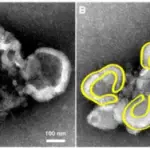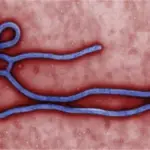Varicella-Zoster virus is ubiquitous human alpha herpesvirus that causes varicella chicken pox and herpes zoster shingles
What is the Pathology of Varicella-Zoster Virus?
The pathology of varicella-zoster virus is:
-Etiology: The cause of varicella-zoster virus is varicella-zoster virus.
-Genes involved: Not applicable.
-Pathogenesis: The sequence of events that lead to varicella-zoster virus are: the virus enters the host through the respiratory tract and replicates at the site of entry in the nasopharynx and in regional lymph nodes, and then enters other organs causing the infection of skin.
-Morphology: The morphology associated with varicella-zoster virus shows sores on a dermatome .
-Histology: The histology associated with varicella-zoster virus shows keratinocytes are multinucleated, acantholytic with distinct nuclear inclusions, found initially in follicular epithelium. The Tzanck preparation shows characteristic findings of giant cells with multiple nuclei.
How does Varicella-Zoster Virus Present?
Patients with varicella-zoster virus typically are all genders at an age range of 45-64 years. The symptoms, features, and clinical findings associated with varicella-zoster virus include loss of appetite, fever, tiredness, and headache.
How is Varicella-Zoster Virus Diagnosed?
Varicella-zoster virus is diagnosed by lab test blood test, a culture of lesion samples.
How is Varicella-Zoster Virus Treated?
Varicella-zoster virus is treated by medications oral acyclovir, famciclovir, and valacyclovir.
What is the Prognosis of Varicella-Zoster Virus?
The prognosis of varicella-zoster virus is good. Very rarely, shingles can lead to pneumonia, hearing problems, blindness, brain inflammation encephalitis or death.



